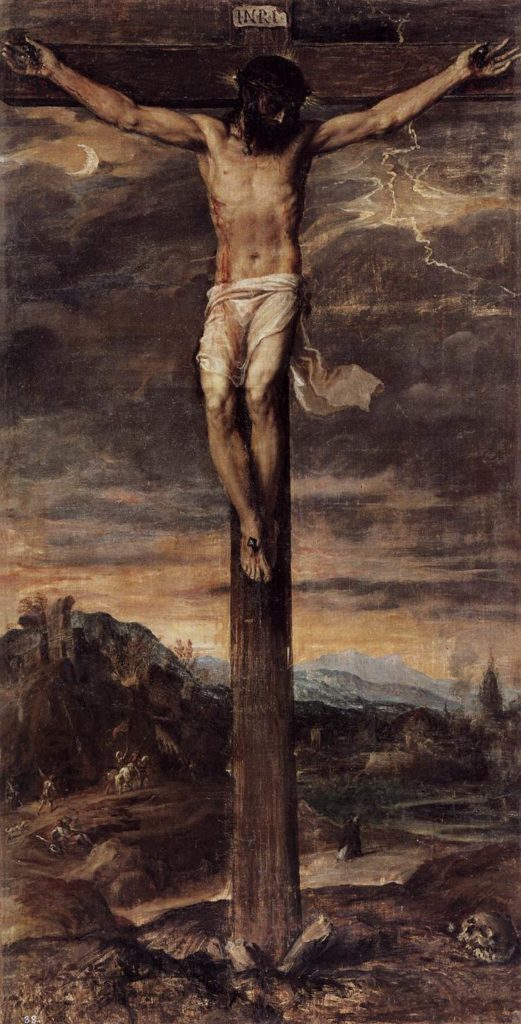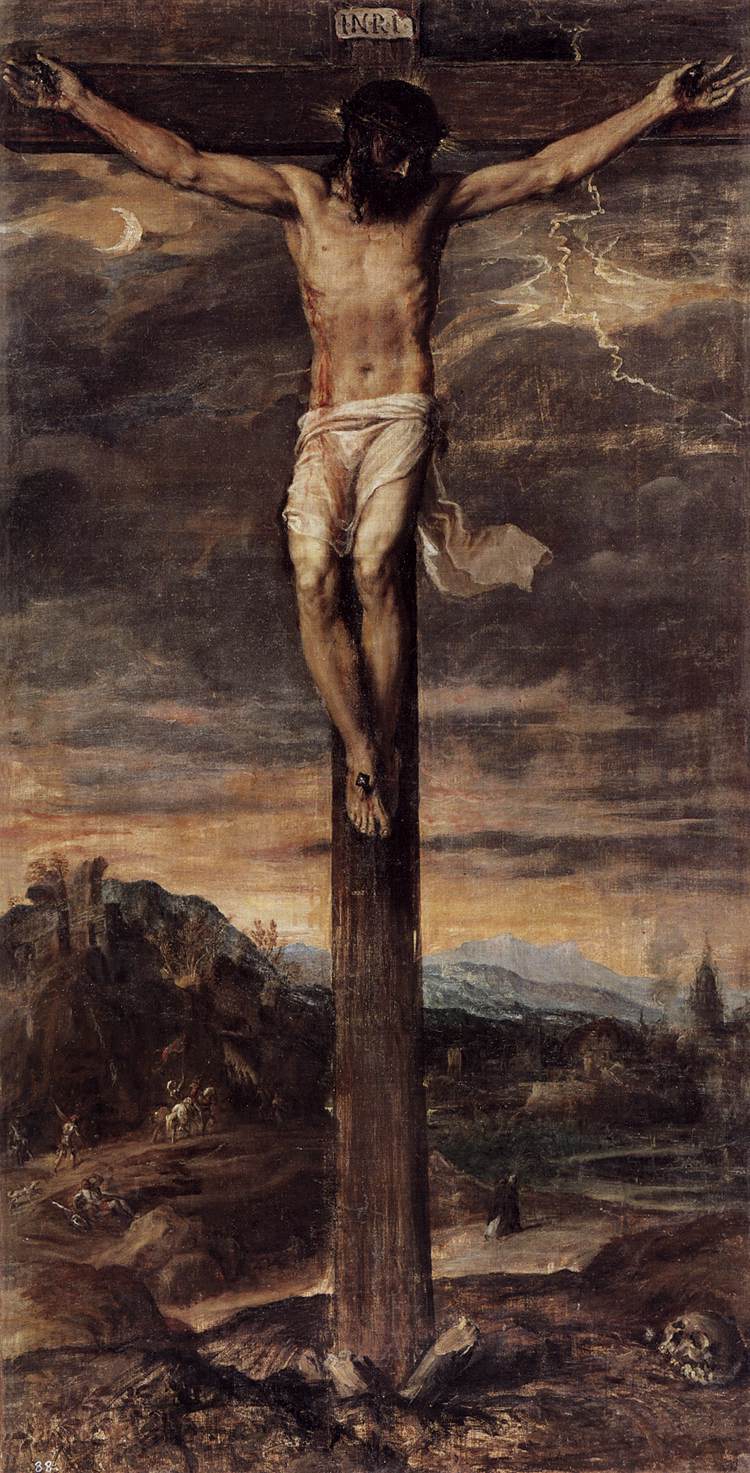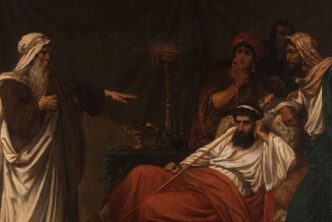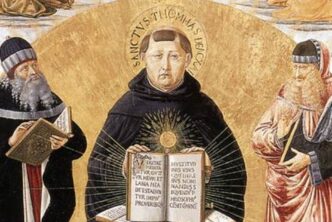
St. Thomas Aquinas’s major works of theology remain widely read and discussed, but his homilies and academic sermons are neglected. Here’s a homily he delivered on Palm Sunday on the subject of the Passion. The homily displays St. Thomas’ clarity, thoroughness, and closeness to Scripture.
HOMILY XII
the Lord’s work and ours
“And they crucified Him.”- Matthew 27:35.
We ought to consider three things concerning the Passion of the Lord—firstly, its nature; secondly, its power; thirdly, its benefit.
I. On the first head it is to he noted, that the Passion of Christ was very bitter for three reasons—(1) On account of the goodness of Him suffering. (2) On account of the indignity of His Passion. (3) On account of the cruelty of those carrying out the sentence. The goodness of Him suffering is manifest from three circumstances—Firstly, because He harmed no one: 1 Peter 2:22, “Who did no sin.” Secondly, because He most patiently sustained the injuries laid upon Him: 1 Peter 2:23, “Who, when He was reviled, reviled not again;” Jer. 11:19, “I was like a lamb or an ox that is brought to the slaughter.” Thirdly, He was doing good to all: Acts 10:38, “Who went about doing good;” John 10:32, “Many good works have I shewed you from My Father.” The indignity of His Death is manifest from three things—Firstly, he was judged, which was the most wicked of all: Luke 23:21, “But they cried, saying, Crucify Him, crucify Him.” Secondly, because of the many indignities which He suffered: Matthew 27:27–30, “Gathered unto Him the whole band of soldiers. And they stripped Him, and put on Him a scarlet robe. And when they had platted a crown of thorns, they put it upon His head, and a reed in His right hand … And they spit upon Him.” Thirdly, because He was condemned to a most shameful death: Wisd. 2:20, “Let us condemn Him to a most shameful death.” The cruelty of those who crucified Him is seen from three things—Firstly, very cruelly flagellated Him before death: Matthew 27:26, “When he had scourged Jesus, he delivered Him to be crucified.” Secondly, in giving Him at the point of death vinegar and hyssop to drink: John 19:29, “They filled a spunge with vinegar, and put it upon hyssop, and put it to His mouth;” Ps. 69, “In My thirst they gave Me vinegar to drink.” Thirdly, in wounding Him even after death: John 19:34, “One of the soldiers with a spear pierced His side.”
II. On the second head it is to be noted, that the power of His Passion appeared in three things—(1) In heaven; it took away the light from it, Luke 23:44, 45, “There was a darkness over all the earth until the ninth hour. And the sun was darkened.” (2) In earth, for it trembled, Matthew 27:51, “The earth did quake and the rocks rent.” (3) In Hades, who delivered up its dead, Matthew 27:52, “Many bodies of the Saints which slept arose.” The heavens declare the power of the Passion of Christ; the earth proclaims it; Hades announced it. Phil. 2:8, 9, “Obedient unto death.… That at the Name of Jesus every knee should bow, of things in heaven, and things in earth, and things under the earth.”
III. On the third head it is to be noted, that the benefit of the Passion extended to inhabitants of heaven, earth, and hell. By the Passion of Christ the heavenly ones were recruited; earthly men were liberated from the hand of the Devil; and the holy fathers who were in Hades, were delivered from that place. Of the first, Coloss. 1:20, “To reconcile all things unto Himself by Him, whether things in earth or things in heaven.” Of the second, John 12:31, “Now is the judgment of this world; now shall the princes of this world be cast out;” Coloss. 2:15, “Having spoiled principalities and powers.” Of the third, Zech. 9:11, “I have sent forth thy prisoners out of the pit wherein is no water.”






As Aquinas baptized Aristotle to help classify, clarify and connect the communication of God’s Word, So do we today need to confess (Penance) that there are elements of reason that we have allowed to distort, obfuscate and deny the True meaning of God’s Word in today’s world.